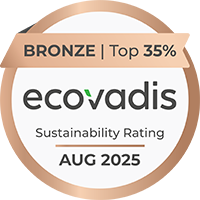On the anniversary of the death of George Floyd, MF’s Jide Fado reflects on how he felt at the time, looks at how perspectives have changed and shares some steps you can take to be more aware of - and work on - your own biases and those in your environment.
Over the past 60 years, stand-up comedians from Lenny Bruce, Richard Pryor to Dave Chappelle, have satirised the brutal relationship between police in America and their black citizens – with raw and inspired comedy. The situation is so outrageous, you either double over howling in agony – or find humour in “The Emperor’s new clothes” that is “The American Dream” for its non-white inhabitants.
In my teens, an American uncle living in Minnesota told me he was raising his teenage kids never to run in public, fearing they could be mistakenly shot or arrested. In recent years social media brought the issue into sharp focus, no longer were we dealing with the grainy images of Rodney King being beaten by police officers, we now had near weekly high-definition images of police brutality.
I spent the first 10 years of my life in Nigeria, where the police were purposefully antagonistic towards civilians and I was afraid of police. In the UK however, I’ve had very little interaction with the police. I have no fear of the police and over the years they’ve been very helpful recovering stolen motorcycles for me and assisting me with kindness and concern after an accident. I do recognise that this is a privileged experience and not everybody is as lucky as I am.
When the world stopped
The killing of George Floyd caught us at a very particular time. The world had stopped for Covid-19, most of us were in lockdown, contemplating, feeling disconnected from our fellow humans and then suddenly confronted with 8:46 minutes of shocking inhumanity – the world stopped again for George Floyd.
What troubled me most about the video was the other police officers didn’t confront Chauvin (since convicted for murder). Either they saw nothing wrong in his actions or they feared reproaching him – it doesn’t matter, the world saw there was a problem. We didn’t leave it on our screens, we started seeing the problems in our own environments. I feel the video woke many people up to the blind spots they had about racial diversity.
Perspectives have changed since George Floyd. A former white colleague phoned to apologise about an incident 10 years ago, for doing nothing to support or defend me when some racial slurs were shouted in Northern England. The truth is, I’d forgotten about the incident until he reminded me, it was so shocking I purged it from my memory. In retrospect neither of us knew what to do. It wasn’t common for me to have racial slurs shouted at me, having grown up in the multicultural cocoon of London. It wasn’t common for him either to be in such proximity to a visceral racist incident, we were both unprepared. I wonder how many other incidents I’d purged from my memory to afford my privileged perspective of the UK.
A shift in the landscape
George Floyd forced many to lift the veil and start acknowledging the different lived experiences of those around them and the structural barriers to equality. In my work as a trainer in Diversity and Inclusion I have often over the years noticed fear and trepidation around discussing race. Now it seems not discussing race is the greater concern. I hear many experiences from people of all backgrounds acknowledging incidents where they didn’t speak up for themselves or stand up as an ally to their black colleagues. In many cases they were not aware and at times complicit. In others, they were shocked and simply didn’t have the tools to act.
I’ve seen a shift in my professional landscape, black women talking about the stereotypes they face, Asian people owning the correct pronunciation of their names, more white people acknowledging there is a problem. Discomfort still exists around conversations about race, but we are no longer pushing those uncomfortable conversations aside.
Barriers to equality for me and many black people are not necessarily incidents with the police, instead what I often hear are a lack of opportunities, invisibility and not belonging.
Having these challenging conversations about structural racism affecting us all means we can work together to make our very own environments more inclusive, accepting and equal.
What can we do at work (and everywhere else)?
While people are more open to their biases, we have a long way to go. Here are some steps you can apply to be more aware and work on your own biases and those in your environment.
1. Be aware of your bias
Unconscious bias is our underlying need to replicate ourselves. There to protect us, we gravitate towards people who look like us, we unconsciously seek confirmation of our assumptions.
My personal example: As an Arsenal fan I’ve never met a fellow fan I didn’t like. At least at first sight.
2. Doing something about your bias
Being aware of your bias is the first step but the more challenging step is walking the talk. Ask yourself:
- Who do you trust and why?
- Who has access to you and why?
- Who do you have concerns around and why?
Be honest with yourself. Are you actively giving people the same opportunities?
3. Enable other people to see their biases
Become an ally and help other people to recognise their bias.
Example: This can be as easy as noticing that your colleague has been excluded in a meeting and speaking up for them.
If you're thinking about how you can create an authentic sense of belonging in your organisation then talk to Shona about how MF's diversity, equity and inclusion team can help you make a meaningful difference.







